The Faculty of Social Sciences and Humanities (FSSH), Universiti Malaysia Sarawak (UNIMAS), in collaboration with the Persatuan Sains Sosial Malaysia (PSSM) and the Business Events Sarawak (BESarawak), successfully organised the 14th International Malaysian Studies Conference (MSC14) in August 2025. The event brought together participants from various institutions, including scholars, researchers, and practitioners from across Malaysia and the wider region, such as Indonesia, Japan, China, Azerbaijan, Nigeria, Singapore, and the USA, to exchange insights on pressing social issues and innovative solutions for sustainable futures.
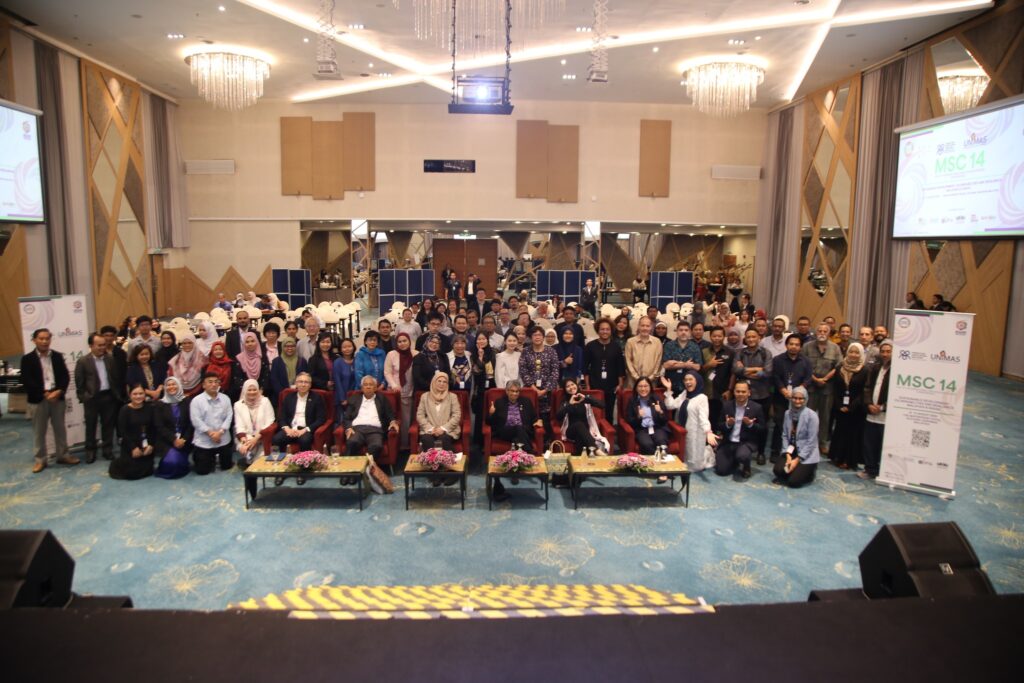
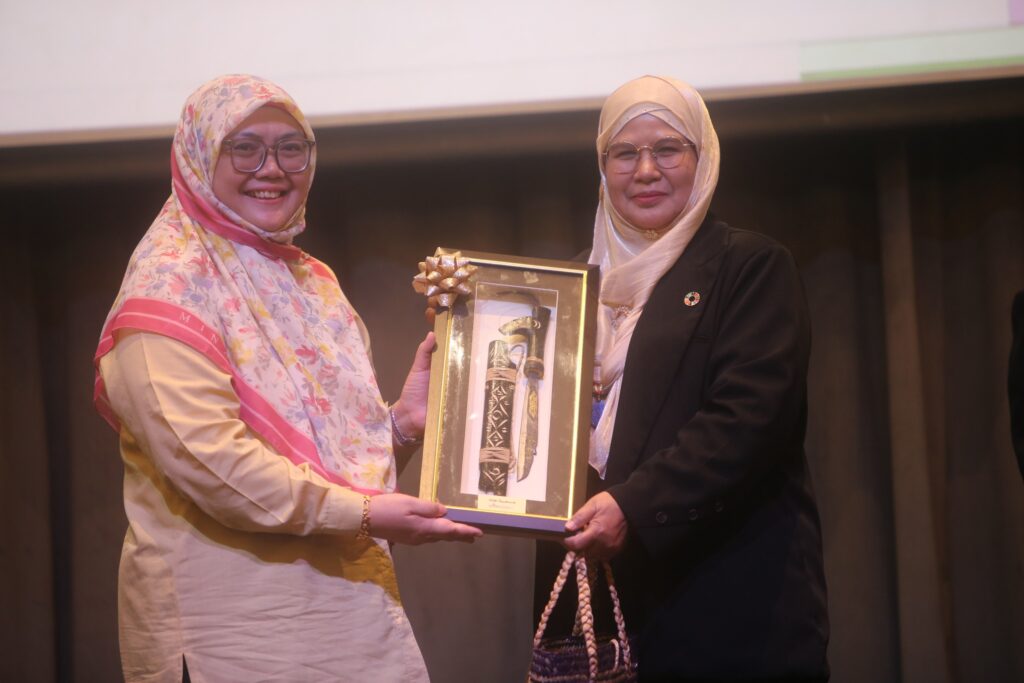
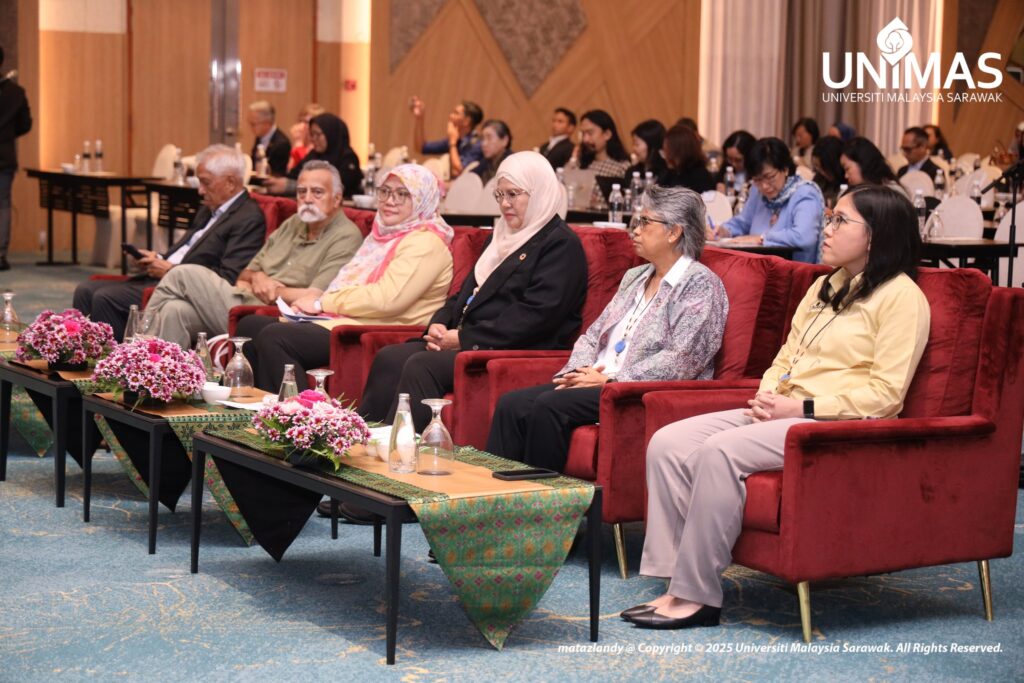
With the theme “Sustainable Development, Vulnerabilities and Resilience: Malaysia and ASEAN”, MSC14 provided a platform for engaging discussions on contemporary challenges ranging from cultural resilience and community development to policy innovation and digital transformations. A total of 146 research papers were presented across 36 panels, reflecting the breadth and dynamism of social sciences research in Malaysia today.
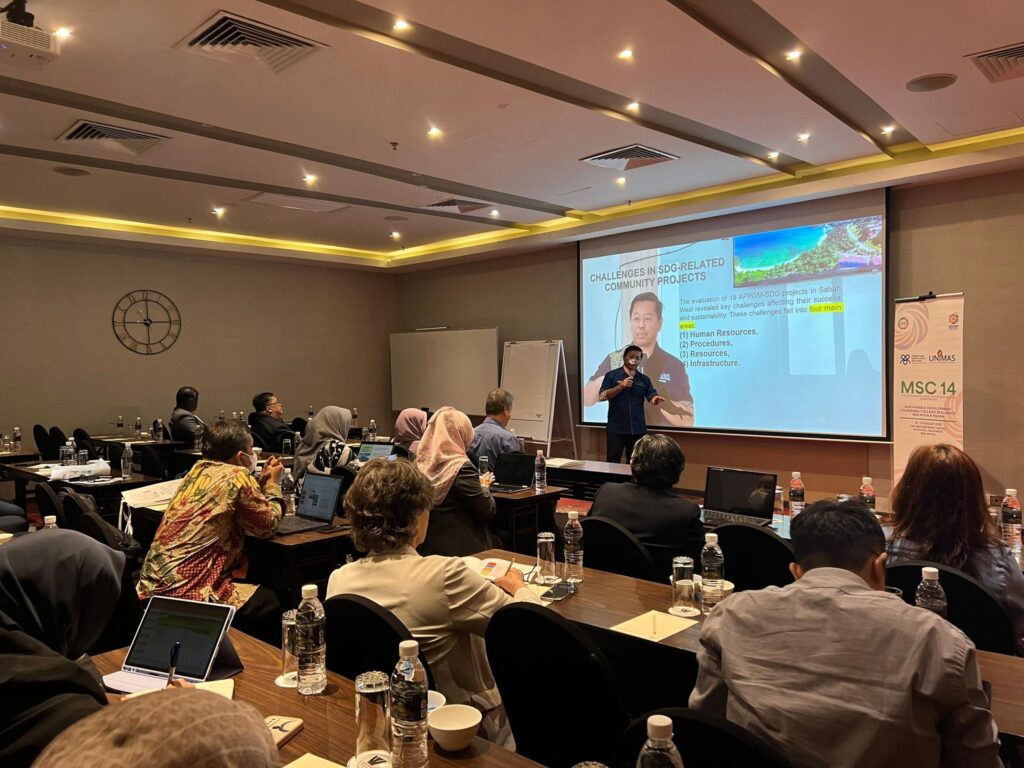
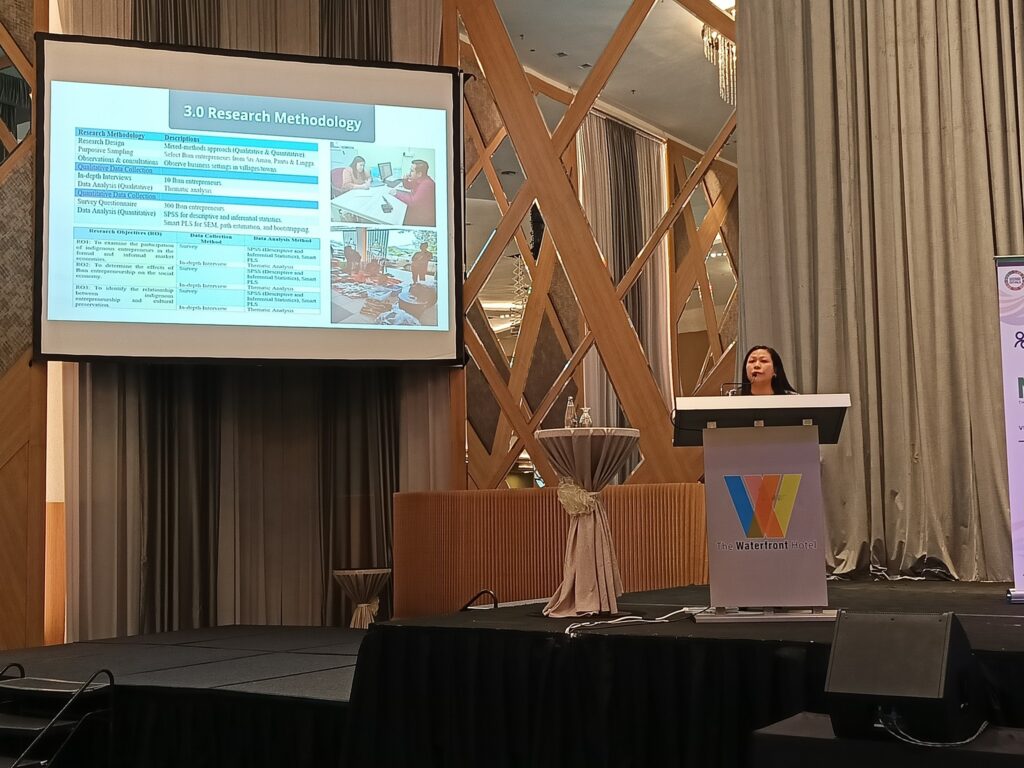
The conference was guided by three key objectives:
- To bring together scholars, both Malaysians and Malaysianists, for the purpose of scholarly exchange and interaction based on their research findings and reflections on Malaysian studies.
- To analyse opportunities, issues, and problems related to the MSC14 theme in Malaysia and the region.
- To examine the state of Malaysian studies and to suggest ways for its advancement, within the broader context of sustainable development, vulnerabilities, and resilience in Malaysia and ASEAN member states.
Conference sessions spanned a wide range of subfields within the social sciences, including: theorising sustainable development, vulnerabilities and resilience in the face of global uncertainties; impactful social science research on sustainable development; climate change and vulnerable human conditions; artificial intelligence, advanced technologies, and challenges in knowledge development; education and online teaching and learning; social media and the challenges of fake news; political contestations, ethno-religious populism, and cultural diversity; ASEAN regionalism and border issues; and comparative perspectives on the SDGs in Malaysia and ASEAN Plus.
Two keynote addresses set the tone for the conference:
- Professor Dr Syed Farid Al-Atas delivered a thought-provoking address on “The Latent & the Manifest in the Discourses on Development”, offering valuable perspectives that resonated with both scholars and practitioners.
- Professor Dr Juneanah Sulehan spoke on“From Periphery to Partnerships: Sarawak’s Strategic Role in Malaysian-ASEAN integration, Sustainable Development, and Cross-Cultural Connectivity in the Nusantara Era”, sparking lively dialogue and fresh approaches to emerging challenges.
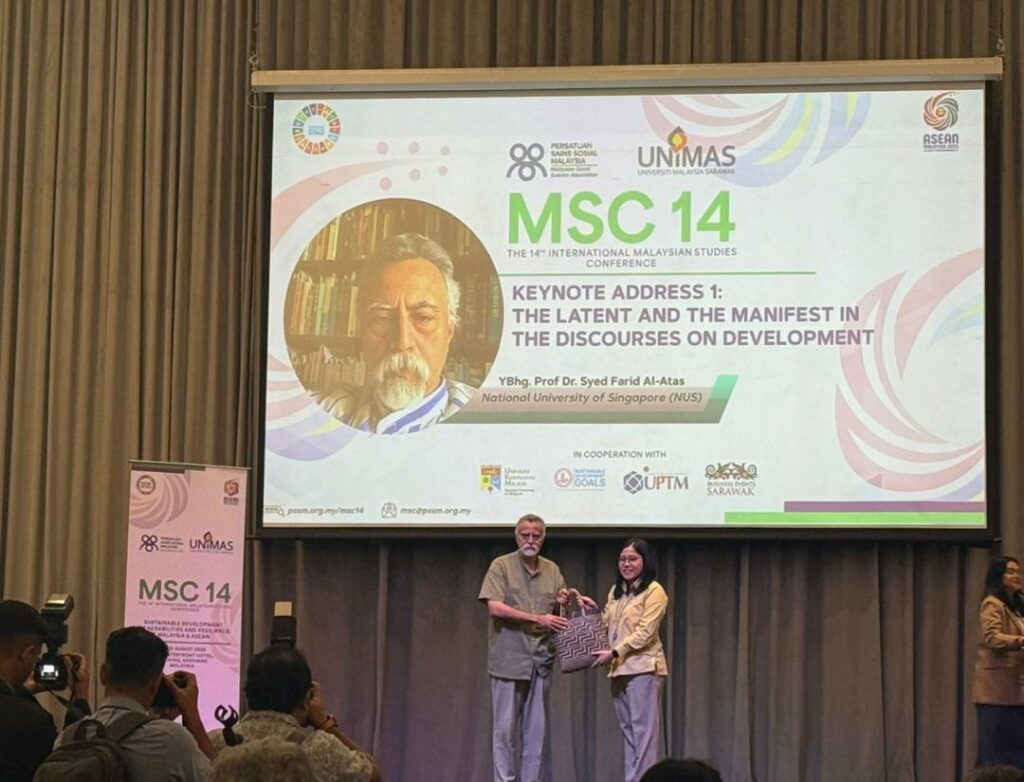
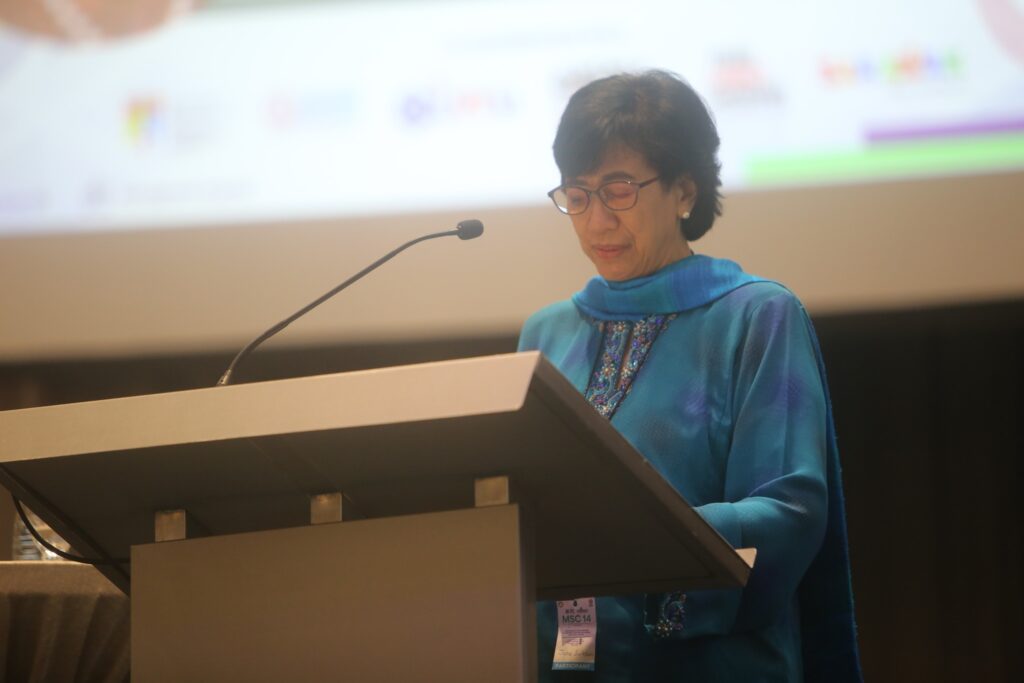
Besides keynote addresses, there were two Roundtable Discussions (RTDs). The first was hosted by APPGM-SDG on Localizing the SDGs in Malaysia: Lessons from Sarawak and National Reflections after Five Years with reflections from panellists among practitioners on APPGM and NGOs. The session was moderated by Datuk Denison Jayasooria, Head of AOOGM Secretariat.The second RTD is on Reflections on Malaysia’s Development and Democracy: The 13th Malaysia Plan and Beyond and it was moderated by Datuk Anis Yusal Yusoff. Director of INPUMA.
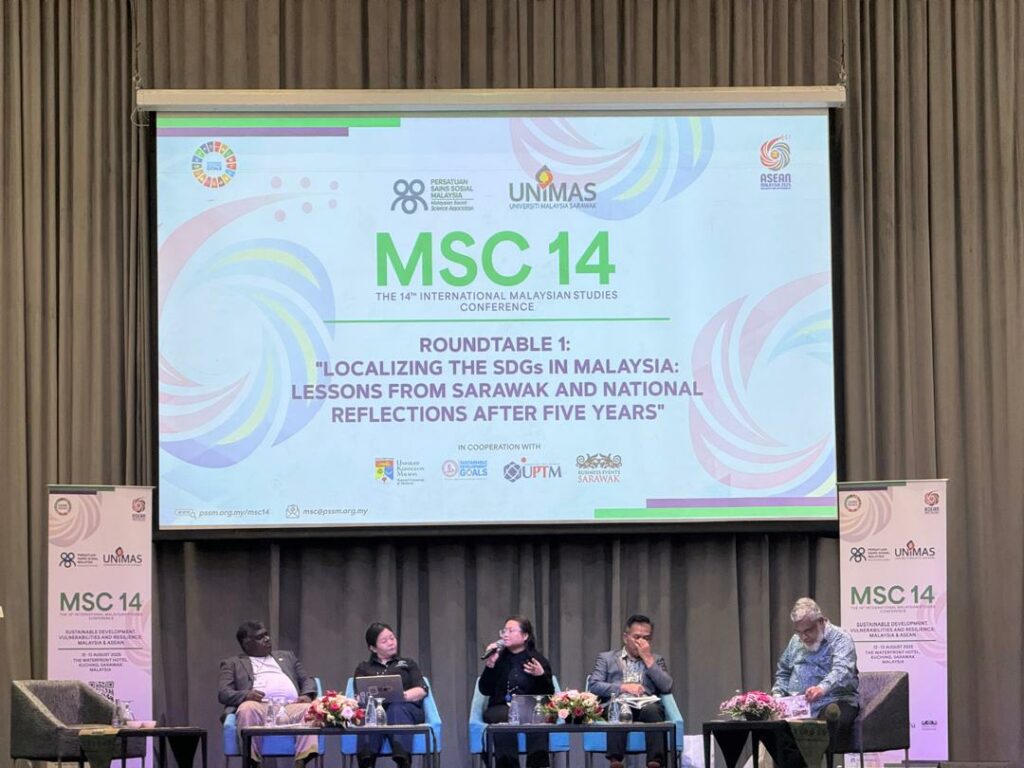
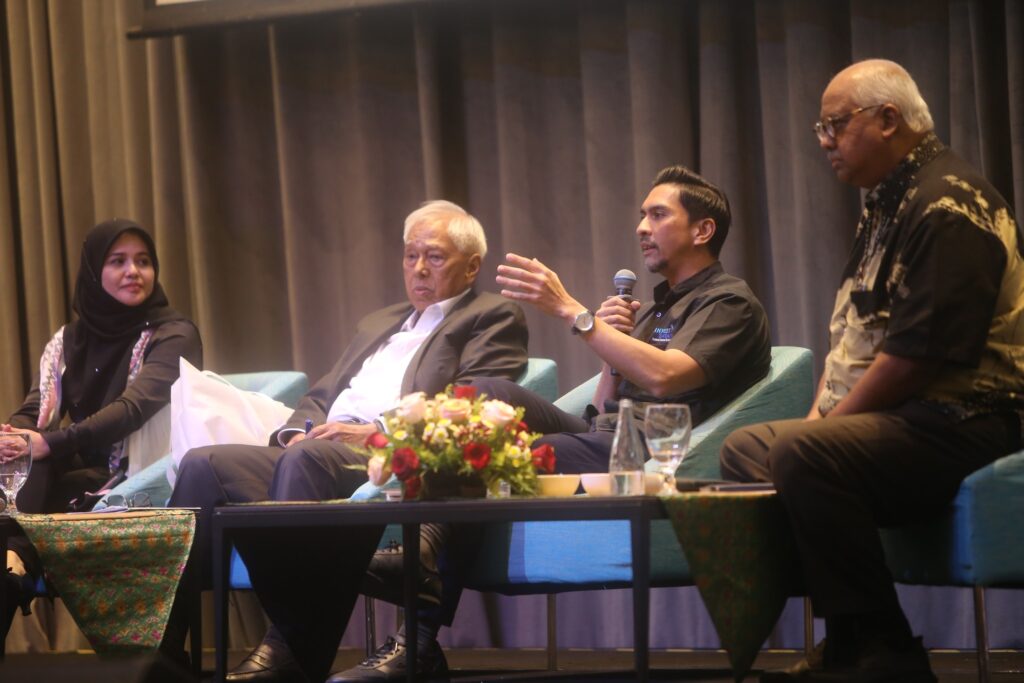
This year’s conference also carried historical significance for FSSH UNIMAS. The last time the faculty hosted the MSC was MSC6 in August 2008, which marked a milestone as the first time the conference was held outside of the Klang Valley. By hosting MSC14, FSSH UNIMAS once again reaffirmed its commitment in advancing social sciences scholarship across Malaysia.
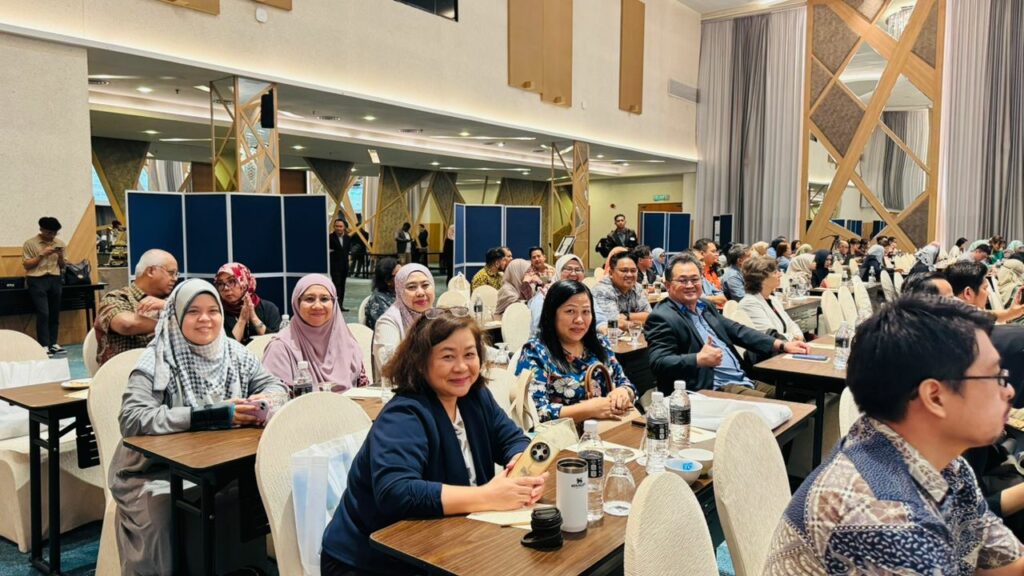
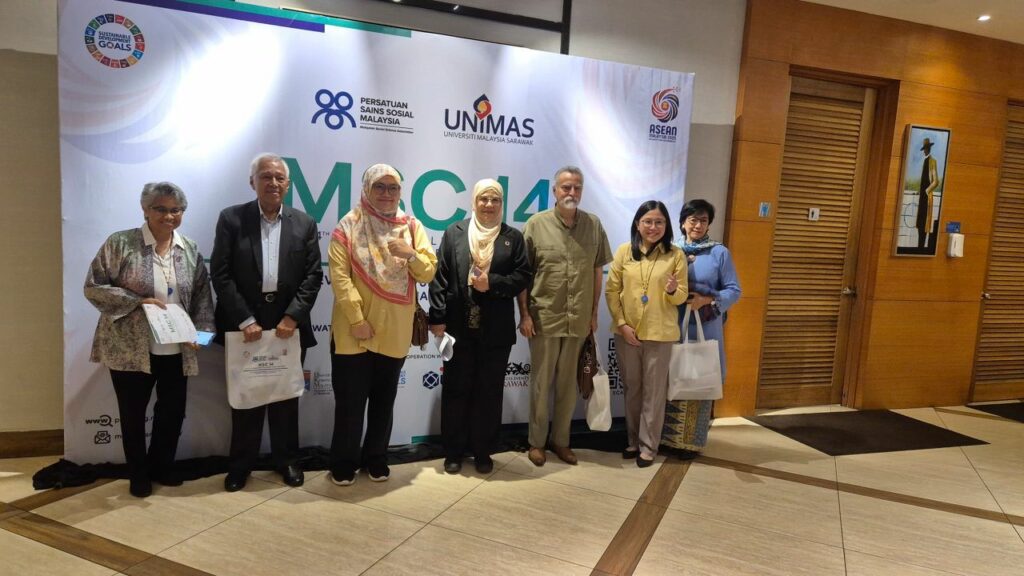
A highlight of MSC14 was the active involvement of postgraduate students, who assisted as conference assistants. Their contributions to logistics, participant engagement, and technical support ensured that the sessions ran smoothly while also providing them with valuable exposure to the organisation of a major academic event. This hands-on experience demonstrated FSSH’s commitment to nurturing the next generation of social science scholars.
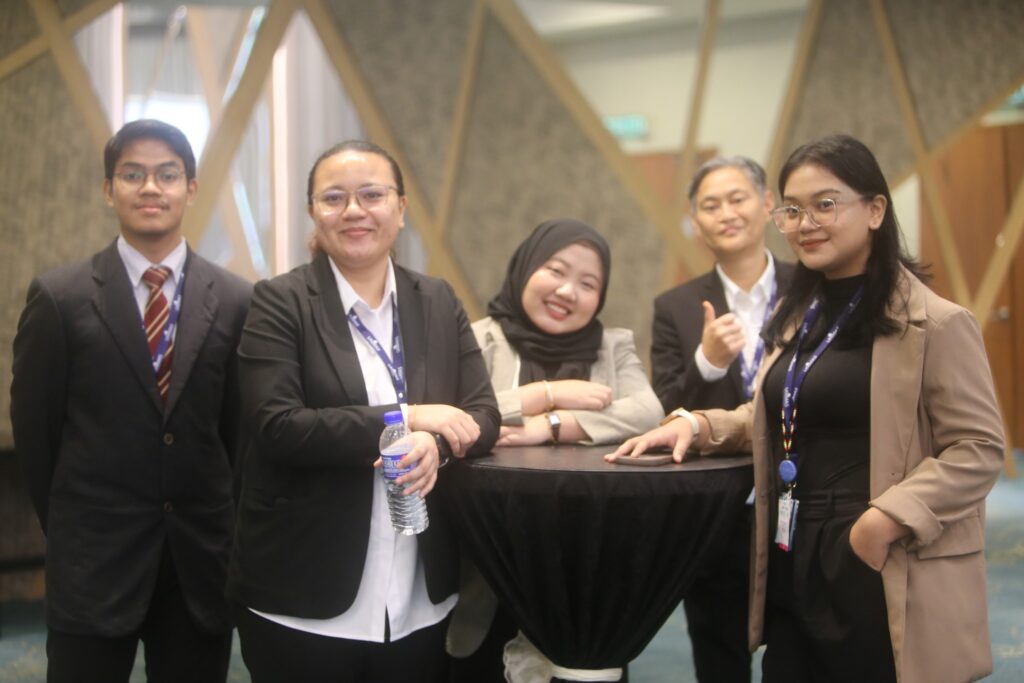
To encourage excellence and innovation, MSC14 also featured Best Presentation Awards across selected panels as well as a Poster Competition. These initiatives recognised outstanding scholarly contributions and provided a platform for early-career researchers and students to showcase their work in creative and impactful ways.
The conference concluded with a vibrant cultural performance by the Dayak Cultural Foundation, showcasing the richness of Sarawak’s cultural heritage. This finale not only celebrated local traditions but also reminded participants of the importance of cultural identity and diversity within the broader discourse of social sciences.
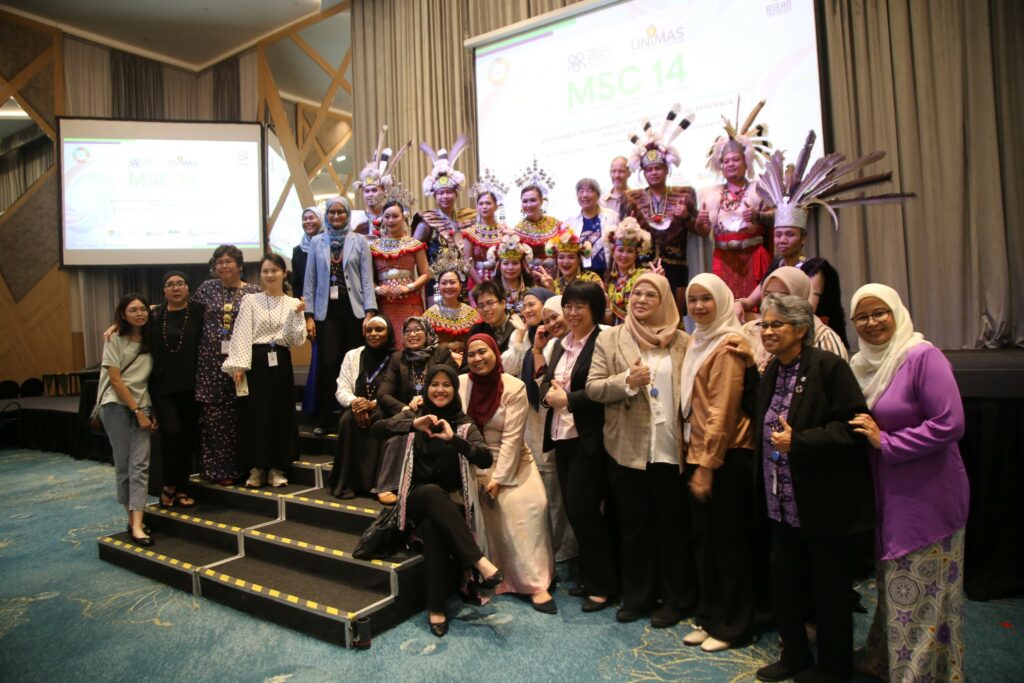
Beyond academic exchange, MSC14 fostered new collaborations among universities, government agencies, and civil society organisations. Networking sessions and informal dialogues created opportunities for participants to explore joint projects and policy engagement, highlighting the conference’s role as a catalyst for meaningful partnerships.
FSSH – A Partner for Social Change